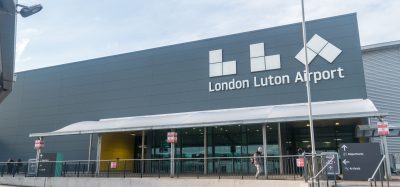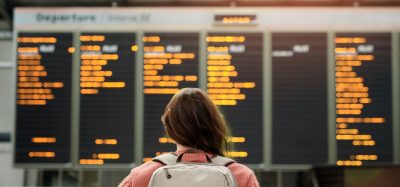FAA invests $1 billion of Bipartisan Infrastructure Law Funding into ATC
- Like
- Digg
- Del
- Tumblr
- VKontakte
- Buffer
- Love This
- Odnoklassniki
- Meneame
- Blogger
- Amazon
- Yahoo Mail
- Gmail
- AOL
- Newsvine
- HackerNews
- Evernote
- MySpace
- Mail.ru
- Viadeo
- Line
- Comments
- Yummly
- SMS
- Viber
- Telegram
- Subscribe
- Skype
- Facebook Messenger
- Kakao
- LiveJournal
- Yammer
- Edgar
- Fintel
- Mix
- Instapaper
- Copy Link
Posted: 29 April 2022 | International Airport Review | No comments yet
The Federal Aviation Administration has begun investing the first $1 billion of $5 billion into the U.S.’s air traffic control system, made possible through the Bipartisan Infrastructure Law.


The U.S. Department of Transportation’s Federal Aviation Administration (FAA) has started investing the first $1 billion of $5 billion into the country’s air traffic control (ATC) system. The funding, made possible through President Biden’s Bipartisan Infrastructure Law, will sustain, repair, or replace hundreds of buildings and pieces of equipment that make flying in the U.S. the safest in the world.
“Air traffic control facilities are the nerve centres of our airspace system, and a big part of the reason why flying is the safest mode of transportation,” commented U.S. Transportation Secretary, Pete Buttigieg. “The Bipartisan Infrastructure Law will repair, replace and modernise the infrastructure that our air traffic control system relies on to keep the travelling public safe for generations to come.”
Secretary Buttigieg visited one of the 22 air traffic control facilities that will received funding thanks to the infrastructure law.
The FAA controls more than five million square miles of airspace in the U.S. and more than 24 million square miles over oceans. The air traffic system includes hundreds of towers at airports and terminal approach control facilities, which provide air traffic services to aircraft approaching and leaving busy airspace. It also includes 22 centres handling aircraft at high-altitudes. These facilities depend on power systems, navigation and weather equipment, and radar and surveillance systems across the country.
TAKE A READ:
What does the Bipartisan Infrastructure Law mean for U.S. airports?
FAA deliver historic investments to Denton Enterprise Airport
Bowman Field Airport receives funding from Bipartisan Infrastructure Law
“There’s a great deal of work needed to reduce the backlog of sustainment work, upgrades and replacement of buildings and equipment needed to operate our nation’s airspace safely. We are going to make sure small and disadvantaged businesses owned by women and minorities have the chance to do this work so we can expand jobs and opportunities across the country,” said FAA Deputy Administrator A. Bradley Mims.
Below is a breakdown of how the FAA will invest the $1 billion available in the first year of funding:
- Reinforce navigation, Weather and Tracking Equipment: The FAA uses a host of communications, surveillance, weather and navigation systems to guide aircraft safely. The FAA will complete the backlog of supporting infrastructure sustainment projects to keep these systems reliable
- Power systems: Replace underground cables, transformers, switches at airports, engine generators and fuel storage tanks that are part of primary and back-up power systems for the air traffic systems
- Enroute flight centres: Update and repair the country’s 22 Air Route Traffic Control Centres that handle aircraft flying at high altitudes
- Long-range radars: Renovate or replace the supporting infrastructure at long-range radar sites, which are critical to tracking flights between airports
- Replace towers: Pay for design, site evaluation and preparation for the first air traffic control towers that will be replaced over the coming years. Many of the towers selected will be located at regional and smaller airports
- Improve towers and approach and departure facilities: More than 50 per cent of the towers and TRACON facilities, which handle flights entering and exiting busy airspace, are over 40 years old. Funding will pay for new elevators, plumbing systems, and supporting infrastructure
- Environmental and safety: Remove and restore areas where we have outdated facilities or personnel safety infrastructure that is no longer used and incorporate environmental and personnel safety updates
- Personnel and travel: Recruit and hire installation technicians and engineers needed to improve and modernise these facilities
- Facility Security: Upgrade various integrated security systems at all FAA staffed facilities. Upgrades include those for guardhouses, visitor parking, fencing, perimeter hardening, window blast protection and lighting.
The projects that this funding supports will create jobs for local suppliers, construction workers, and communities nationwide.
Related topics
Air traffic control/management (ATC/ATM), Aircraft, Airside operations, Funding and finance, New technologies, Safety, Terminal operations


















